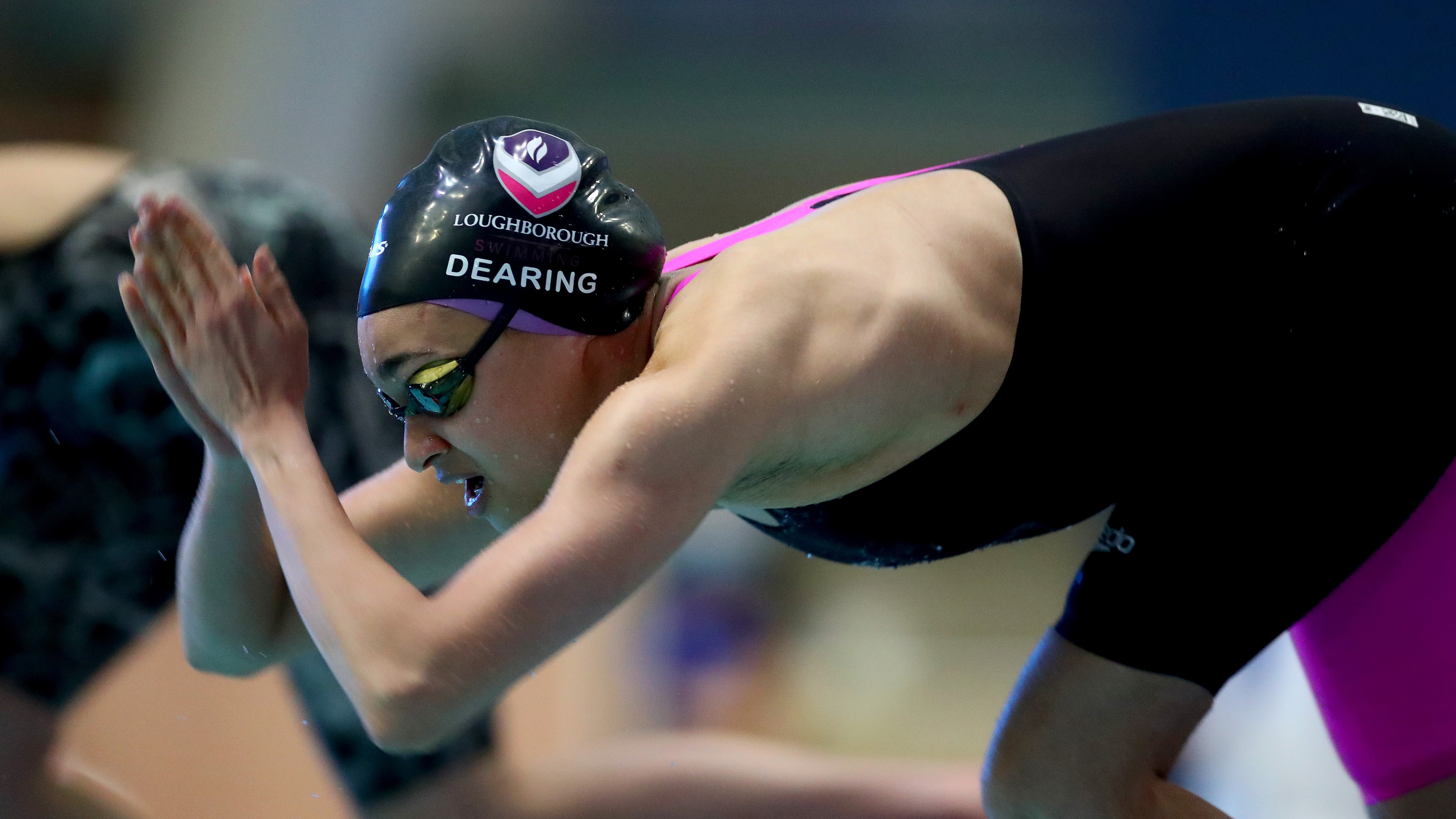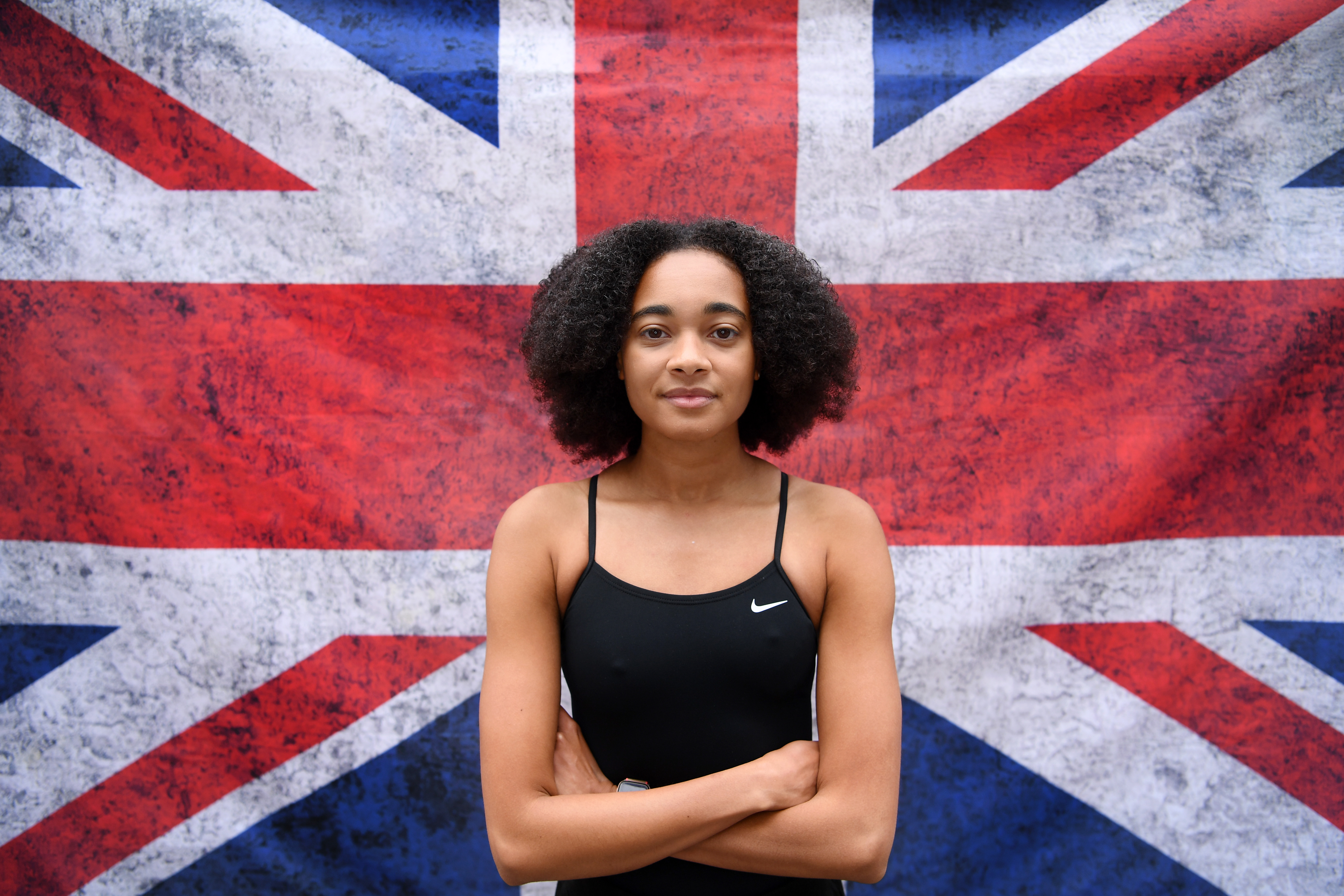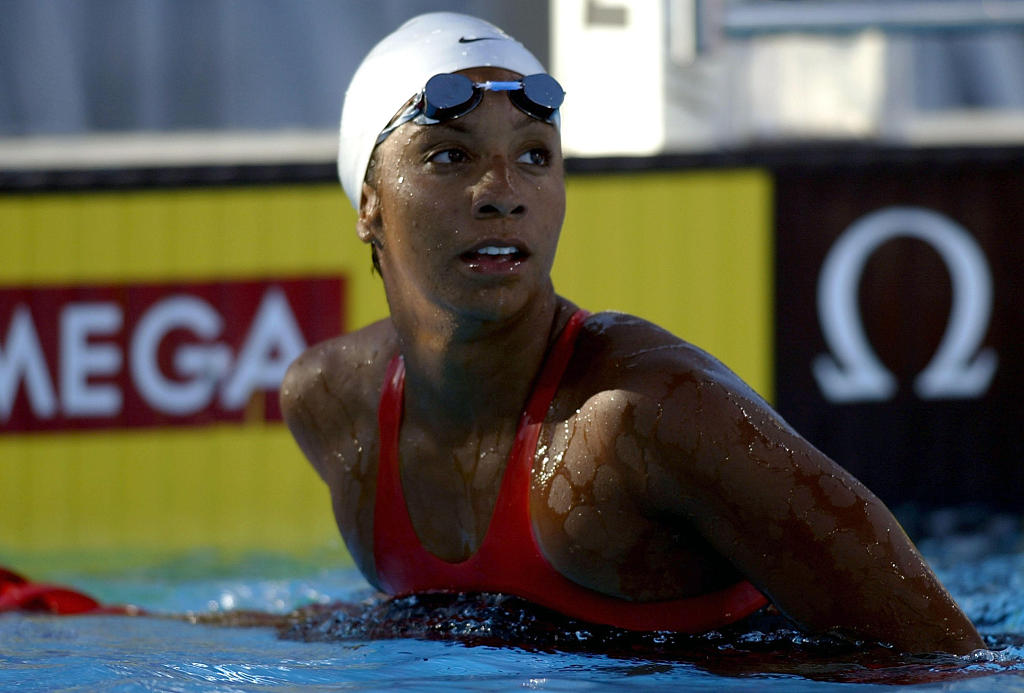
Alice Dearing of Britain in action in the women's 400m medley final in the Manchester International Swimming Meet at the Manchester Aquatics Centre in Manchester, England, February 13, 2021. /CFP
Alice Dearing of Britain in action in the women's 400m medley final in the Manchester International Swimming Meet at the Manchester Aquatics Centre in Manchester, England, February 13, 2021. /CFP
The International Swimming Federation (FINA) has prohibited swimmers from using the extra-large caps designed to protect thick, curly and voluminous hair in the coming Tokyo Olympics.
FINA said that according to its "best knowledge, the athletes competing at the international events never used, neither require to use, caps of such size and configuration." Its decision was based on its belief that the caps do not follow "the natural form of the head."
The world swimming governing body said it wanted to ensure that no swimwear that athletes have access to would provide a competitive advantage. But the decision drew strong responses from the swimming world.

Swimmer Alice Dearing of Britain poses for a portrait at her home in Loughborough, England, June 5, 2020. /CFP
Swimmer Alice Dearing of Britain poses for a portrait at her home in Loughborough, England, June 5, 2020. /CFP
"People used to tell me my hair was 'too big' for the cap – never that the cap was too small for my hair," said Alice Dearing, the only Black British swimmer who will attend marathon swimming in Tokyo.
Maritza Correia, the first Black American swimmer to set a world record in 2000 when she was still known as Maritza McClendon, said FINA's ban showed there's still a structural problem with the sport.
"This is yet another prime example of systemic racism. The reason for rejecting is not a technical reason or a timing issue, but subjective, and that's not right. There's a bigger conversation that needs to be had, and representation needs to be at the table," she said.

Maritza Correia looks at her time after swimming in the 50-meter semifinal during the Swimming Olympic Team Trials of USA at the Charter All Digital Aquatic Center in Long Beach, California, U.S., July 13, 2004. /CFP
Maritza Correia looks at her time after swimming in the 50-meter semifinal during the Swimming Olympic Team Trials of USA at the Charter All Digital Aquatic Center in Long Beach, California, U.S., July 13, 2004. /CFP
"We believe that it confirms a lack of diversity in the sport. If the (official swimming bodies) are talking about representation, they need to speak to the communities to find out what the barriers are that are preventing us from engaging. Hair is a significant issue for our community," Danielle Obe, founder of the Black Swimming Association, told The Guardian.
FINA said in a statement that it understands the "importance of inclusivity and representation" and will speak to Soul Cap, the company that designed the special swimming cap.

